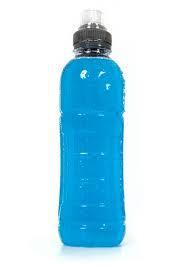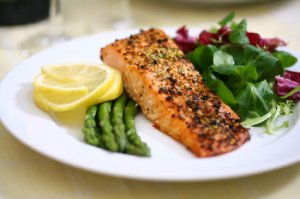In order for footballers to perform to a high standard, a well balanced diet is essential both during training and preparing for a match. There are six groups of nutrients that are important in a footballer’s diet, these are: carbohydrates, protein, vitamins, minerals, water and fat.

Carbohydrates
Carbohydrates come in various forms such as: simple sugars (glucose, fructose) and complex starches (pasta, potatoes and rice). Carbohydrates are the main energy fuel source for a footballer, it gets stored in the muscles and liver as glycogen. The amount of glycogen that can be stored in the muscle and liver is limited so the body needs to refuel regularly. Good sources of carbohydrate include cereal, fruit, vegetables and confectionery.

Protein
Proteins are chemical compounds composed of amino acids, they help with tissue growth/repair and they can also provide as an energy source when fat and glycogen stores are low. Good sources of protein include: dairy products, meat, fish, poultry and beans.
Vitamins
Vitamins can aid in the production of energy. As long as you have a well balanced diet, you shouldn’t have any need for supplements. A good source for vitamins is: vegetables, fresh fruit and wholegrain cereals.
Minerals
These nutrients are required in small amounts by the body but are vital for tissue functioning, transmission of nerve impulses enable effective muscle contraction. Good sources for minerals are: green leafy vegetables, meats, dairy products, wholegrain cereals, fruits and fish.

Water
Water is an essential nutrient for a footballer, if you have a good level of water intake you are more able to perform to a higher standard as opposed to if you had a low level through sweating due to the intense demands on the body. Water loss/dehydration can cause muscle cramps and potentially cause heat stroke. Sports drinks such as Lucozade sport and Powerade were created to help replace fluid and electrolytes lost through sweating, dehydration and help improve glucose levels in the blood.
Fat
Fat is a major source of energy and is mainly used during low intensity endurance based activities. However, as you need a high level of endurance in football a little is also needed. The consumption of fatty foods should be kept low at a maximum of about 30% of total calories consumed so it will enable good health and adequate energy stores.




